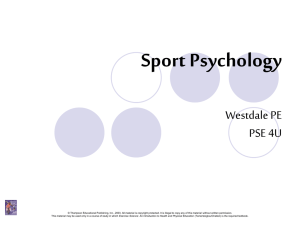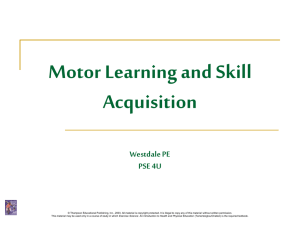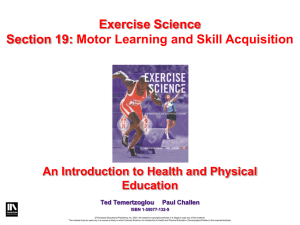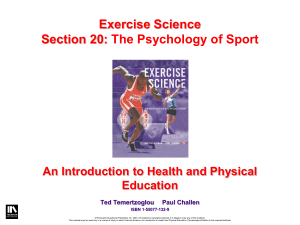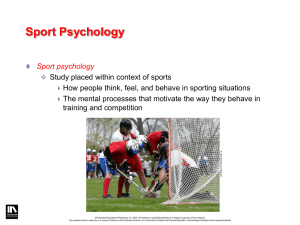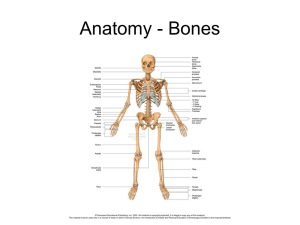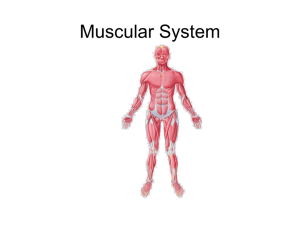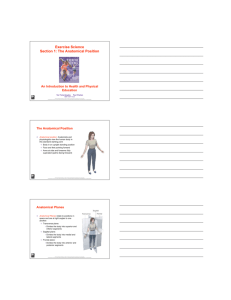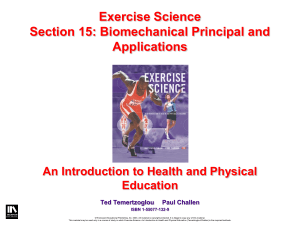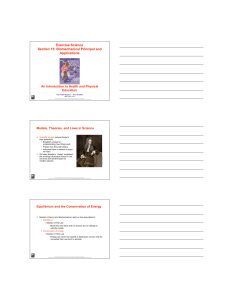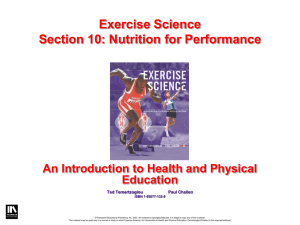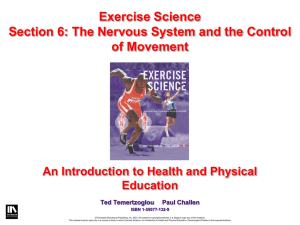Sport Psychology
advertisement
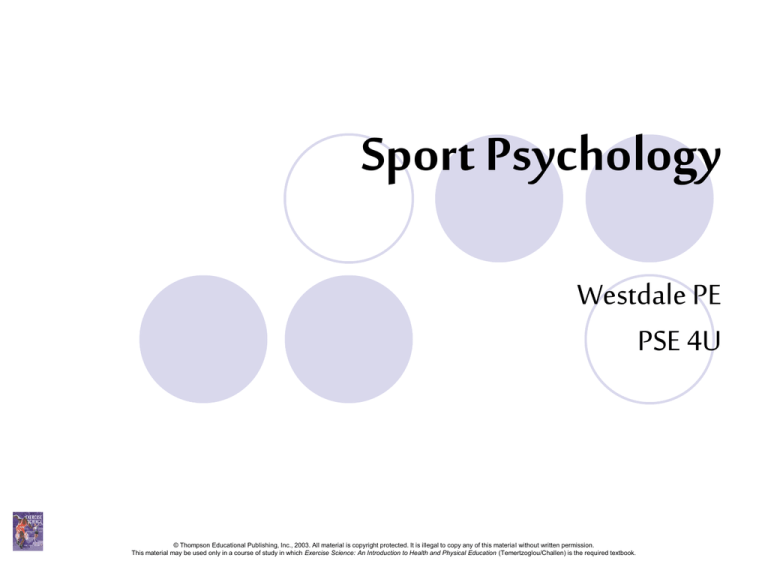
Sport Psychology Westdale PE PSE 4U © Thompson Educational Publishing, Inc., 2003. All material is copyright protected. It is illegal to copy any of this material without written permission. This material may be used only in a course of study in which Exercise Science: An Introduction to Health and Physical Education (Temertzoglou/Challen) is the required textbook. Sport Psychology: A Definition Scientific study of the thought processes, feelings and behavior of humans and other animals in their interaction with the environment Sport psychology is this study placed within context of sports-how people think, feel and behave in sporting situations and what mental processes motivate the way they behave in training and competition © Thompson Educational Publishing, Inc., 2003. All material is copyright protected. It is illegal to copy any of this material without written permission. This material may be used only in a course of study in which Exercise Science: An Introduction to Health and Physical Education (Temertzoglou/Challen) is the required textbook. Lecture Task 1 Think of an instance where you have experienced or witnessed someone who is “in the zone”. What characteristics does this person have while s/he is in this moment? What are they like? © Thompson Educational Publishing, Inc., 2003. All material is copyright protected. It is illegal to copy any of this material without written permission. This material may be used only in a course of study in which Exercise Science: An Introduction to Health and Physical Education (Temertzoglou/Challen) is the required textbook. The Ideal Performance State AKA: “In the zone”, “auto-pilot”, “nailed routine”; Combining right mental commands with flawless physical execution Psychologists call it the “ideal performance state”: Complete absence of doubt and fear of failure Lack of critical thought of performance Narrow focus of attention; little or no distraction Sense of effortlessness Powerful feelings of being “in control” Feeling that “time has stood still” Little or no fatigue: could “go forever” © Thompson Educational Publishing, Inc., 2003. All material is copyright protected. It is illegal to copy any of this material without written permission. This material may be used only in a course of study in which Exercise Science: An Introduction to Health and Physical Education (Temertzoglou/Challen) is the required textbook. Key Terms in Sport Psychology Anxiety The ‘bad’ feelings during a performance: apprehension, general sense of uncertainty, muscular tension, “butterflies” Must be limited or controlled in order to perform well Arousal The ‘good’ feelings during a performance: being “psyched up”, athlete feels ready both physically and psychologically to be very best Allows athlete to perform at high levels during competition © Thompson Educational Publishing, Inc., 2003. All material is copyright protected. It is illegal to copy any of this material without written permission. This material may be used only in a course of study in which Exercise Science: An Introduction to Health and Physical Education (Temertzoglou/Challen) is the required textbook. Sport Psychology: The Inverted-U Hypothesis © Thompson Educational Publishing, Inc., 2003. All material is copyright protected. It is illegal to copy any of this material without written permission. This material may be used only in a course of study in which Exercise Science: An Introduction to Health and Physical Education (Temertzoglou/Challen) is the required textbook.
